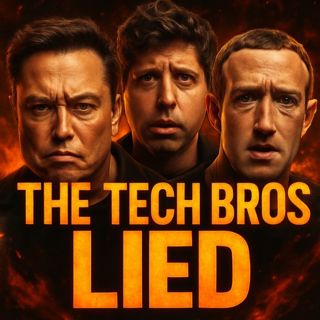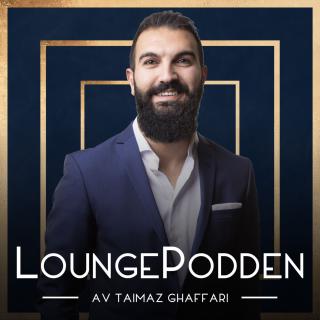
E138: Hidden Rules of Ownership Explained
A deep dive into Michael Heller & James Salzman’s Mine, exploring how modern “ownership engineering” shapes innovation, resource access, and societal outcomes.Guest BiosMichael Heller: Vice Dean & Pro...
10 Juni 202557min

E137: Buy, Borrow, Die: Build Wealth Using Other People's Money
In this episode, Mark Quann, founder of the Perfect Portfolio, discusses his "Buy, Borrow, Die" strategy for building wealth, legally avoiding taxes, and achieving financial independence.Guest Bio:Mar...
6 Juni 20251h 6min

E136: Pediatrician Explains How to Raise Healthy Kids in our Modern World
Dr. Paul Turke, a pediatrician and anthropologist, discusses his book Bringing Up Baby, exploring evolutionary insights on child health, grandparent roles, and the social aspects of aging, with a focu...
3 Juni 202558min

E135: Tech Bubble About to Burst - Dr. Jeffrey Funk Explains Why
Dr. Jeffrey Funk discusses his book Unicorns, Hype, and Bubbles, offering critical insights on the current tech bubble, the limitations of AI, and the dangers of overhyped investments in today's start...
30 Maj 20251h 10min

E134: Bad HOA: Fighting Back Against Evil Homeowner Associations w/ Attorney Luke Carlson
Luke S. Carlson, founder of LS Carlson Law, discusses his book Bad HOA and shares insights into common issues homeowners face with HOAs, including how to reclaim power from abusive boards.Guest Bio:Lu...
27 Maj 202553min

E133: How the CIA Helped Burma Become the World's Richest Drug Empire - w/ Patrick Winn
Patrick Winn discusses his book Narcotopia, exploring the rise of the most powerful drug cartel in Asia, its ties to the CIA, and its transition from heroin to methamphetamine production in Myanmar's ...
20 Maj 202546min

E132: Grief, Google & the AI Revolution: Vauhini Vara Unpacks Tech's Hold on Our Lives
Vauhini Vara explores the impact of technology on identity, grief, and personal agency in a world dominated by AI and surveillance capitalism.Guest Bio:Vauhini Vara is a journalist and prize-winning a...
13 Maj 202548min

E131: How Alcohol Actually Benefits Health – Tony Edwards Reveals the Truth
Medical research journalist Tony Edwards joins us to discuss the research behind his books The Good News About Booze and The Very Good News About Wine. He challenges common myths about alcohol and hea...
6 Maj 202550min






















